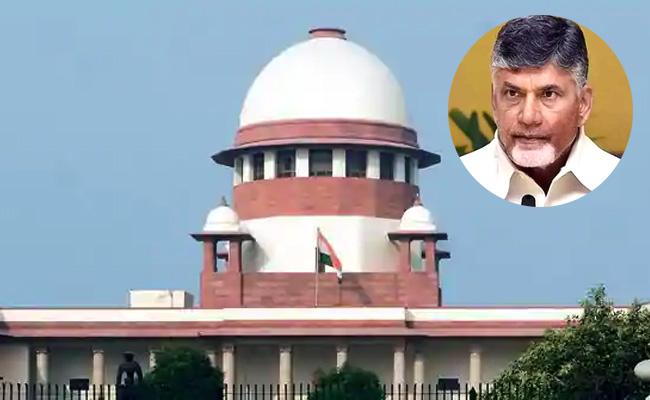
The Supreme Court on Tuesday gave a split verdict in the petition filed by Telugu Desam Party president and former Andhra Pradesh Chief Minister Chandrababu Naidu for quashing of the case filed against him by the Andhra CID in the skill development scam case.
The split verdict was given by a Supreme Court bench comprising Justice Aniruddha Bose and Justice Bela M Trivedi, who heard Naidu's special leave petition challenging a September 22 order passed by the high court declining to quash a first information report (FIR) arraigning the ex-chief minister as one of the accused in the case.
The judges delivered two separate judgments and as they could not arrive at a conclusion, they referred to a larger bench headed by chief justice of India D Y Chandrachud.
Justice Bose held that previous sanction within the meaning of Section 17A of the Prevention of Corruption Act, 1988 will have to be obtained after becoming operational, failing which, an inquiry or enquiry shall be illegal.
Accordingly, he held that Naidu could not have been proceeded against for offences under Section 13(1)(c), 13(1)(d) and 13(2) of the 1988 act on grounds of non-procurement of prior approval from the concerned authority.
However, the State government could now apply and obtain the approval order, he clarified.
He also ruled that the trial court had jurisdiction to pass the remand order and refused to quash it.
"A lack of approval would not make the entire remand order void," Justice Bose said.
Justice Trivedi disagreed with her colleague on the interpretation of Section 17A. She held that this provision could not be made applicable retrospectively. Her conclusion that Section 17A, being substantive in nature, would only apply to new offences under the PC Act, which underwent significant amendments in 2018.
The prior sanction requirement under Section 17A would apply only to the new offences and not to the offences existing prior to 2018 amendment.
She also pointed to the legislative intent behind the provision and said, "It cannot be the objective of Section 17A to give any benefit to dishonest public servants. If it is applied retrospectively, it will frustrate many pending enquiries and investigations."
In view of the split in the bench's interpretation of Section 17A of the Prevention of Corruption Act, the matter will now be referred to a larger bench. Justice Bose said after both judges pronounced the operative portions of their judgments in court today.
“As we have taken different opinions on the interpretation of this section, as also applicability on the appellant, we refer the matter to the Chief Justice of India for appropriate directions,” the bench said.













